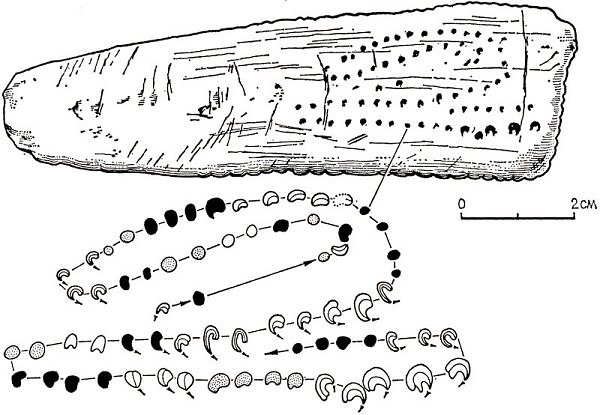
In her unfinished manuscript of Parable of the Trickster, the final in the Parable series, Octavia Butler wrote: “There’s nothing new under the sun but there are new suns.”
Whether we agree to call the current era the Anthropocene, the Capitalocene, the Plantatiocene, the Cthulucene, or any other designation, the process of defining what marks our present as a distinct category affects our vision of the future. At the level of popular culture, time travel narratives frequently overemphasize the scale and impact of the butterfly effect, despite or perhaps because many see ourselves as incapable of affecting any real, structural change in the present or future, experiencing reality as static non-agents of a time-already-determined. As a future-oriented genre, SF is intimately linked to concerns with time as an unstable social category and with fortuitous (or failed) timing determining either the success of resistance against extractivism or the approaching threat of total annihilation. There is also to consider the real-life effect of the feedback loop between SF as a warning or premonition and technology development processes, leading to what is known as science fiction prototyping.
Caught between techno-utopian impulses that accommodate visions of the infinite and the more temperate practice of future casting, SF is a battleground for traditional understandings of linear time with non-linear alternatives from cyclical time to the multiple universes of string theory. Time bending in general, but also time travel more specifically are still mainly associated with SF, yet have seen increasingly more frequent forays into fantasy (2014- Outlander, 2016-2017 Dirk Gently’s Holistic Detective Agency, 2022 Everything Everywhere All At Once), thriller (2014 Edge of Tomorrow, 2019- Russian Doll), and even horror (2017 The Endless, 2017 Happy Death Day, 2017-2020 Dark) occasionally in conjunction with superhero narratives that expose paradoxes and push characters to the limit of their abilities to prevent the impending apocalypse (2016 Doctor Strange, 2019 Avengers: Endgame). As we turn our attention to time itself as a category, we extend this understanding from historical time to domestic time whether marked or not by the double shift, to more discrete categories carrying overtones of measurable progress (such as managerial time, military time, industrial time, and simulated time) or those frustrating expectations of normative life stages (queer time and crip time), as well as cinematic techniques such as flashbacks, time-lapse or montage.
Disrupting the conventional passage of time by either machine, a touch of magic, the intervention of the supernatural, faulty memory, deliberate narrative choices, or a combination of these factors, this year we invite you to join us as we examine what it means to be in and out of time. Our concerns include challenges to chrononormativity posed by decolonial modalities that critically examine the practice of submitting and maintaining historical records such as Afrofuturism and indigenous slipstream alongside crucial analyses of the creeping dangers of unexamined nostalgia and retrofuturism, especially of the pseudo-nostalgic yearning underpinning compensatory reconsumption in an age of self-cannibalising narratives, endless reboots, and a sense that the future, if not history itself, has been cancelled. We are interested in multiple chronotope possibilities in conjunction with synchronous and asynchronous modes of communication and collaboration from turn-based table-top gaming to virtual realities, from accounting for different time zones to managing different calendars and even the lag between subjects separated by lightyears on planets with different rates of revolution or even torn apart by a wormhole or a black hole. Following Judith Berman’s argument in “Science Fiction without the Future” (2001), we question Golden Age SF’s fear of aging and obsession with regeneration to welcome human and non-human entanglements beyond the demand to master others as we accommodate a variety of organic and inorganic temporalities.
For our first reading group under the new annual theme on November 21st, 19:00 London time (Zoom link to be shared closer to the date – mailing list, Facebook), we will be discussing the following:
- “What’s A Story Like You Doing In A Place Like This? Cyberspace, New Media and Indigenous Speculative Fiction” (2015)
https://novelalliances.com/2015/03/23/whats-a-story-like-you-doing-in-a-place-like-this-cyberspace-and-indigenous-futurism-in-neal-stephensons-snow-crash/
- Simon Ortiz, “Men on the Moon”, in Walking the Clouds: An Anthology of Indigenous Science Fiction (2012)
- Darcie Little Badger, “Né łe!” (2016)
https://galli-books.co.uk/2018/05/01/ne-le-by-darcie-little-badger/ - N.K. Jemisin, “The Effluent Engine” (2018)
https://www.lightspeedmagazine.com/fiction/the-effluent-engine/
R.S.A. Garcia, “12 Things a Trini Should Know before Travelling to a Back in Times Fete” (2022)
http://strangehorizons.com/fiction/12-things-a-trini-should-know-before-travelling-to-a-back-in-times-fete/
Leave a Reply